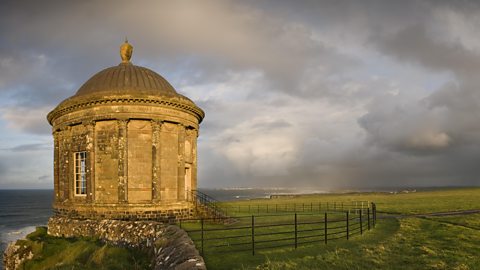What do you know?
What problems can be caused by heavy snowfall in the UK?
Heavy snowfall in the UK can lead to problems on the roads as vehicles become stuck and cause travel disruption. It can also lead to injuries and illness, which causes school and business closures. Heavy snowfall in the UK can also lead to power cuts as the weight of the snow can break power lines, and water pipes can freeze, which causes heating problems.
Key points
- Extreme weather is weather that is unusual or unexpected. Many types of extreme weather affect the UK, including strong winds and storms, droughtA prolonged period of low rainfall and a high level of evaporation. and floods and extreme hot or cold spells.
- The extreme hot spell of June and July 2018 was one of the hottest and driest summers on record. It caused many problems, including drought, poor harvests and health issues.
- During the cold spell of February 2021 the UK experienced some of the coldest temperatures on record. Snow and blizzards caused travel disruption and led to high winds and waves.
Game - Extreme weather
Play a Planet Planners mission and help people prepare for and respond to different kinds of extreme weather.
You can also play the full game
What is extreme weather?
Extreme weather is any weather that is unusual or unexpected. This can be severeSomething that is extreme or intense. For example, severe weather can be very hot or very cold, very wet or very dry. or unseasonalOccurring at an unexpected time of year. For example, very warm weather during the UK winter. weather. In the UK, warnings are issued if extreme weather is expected. Examples of extreme weather include:
Strong winds and storms
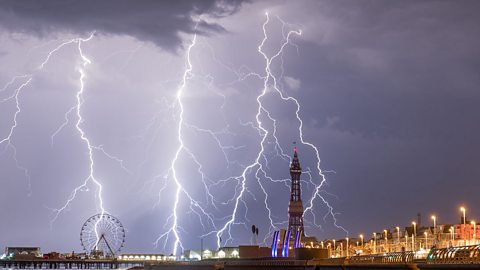
Strong winds and storms can cause damage to property and can be hazardousDangerous or harmful to humans. to people. Thunderstorms are caused by warm air rising rapidly. They are more common in the UK summertime when air temperatures are very warm. They have lightning strikes, which can damage property and cause fires.
Since 2015, severe storms in the UK have been given names. This enables weather forecasterPeople who make predictions made about future weather. A forecaster will tell us if it is going to be sunny or cold, rainy or dry. to track how a particular storm is developing over time.

Droughts
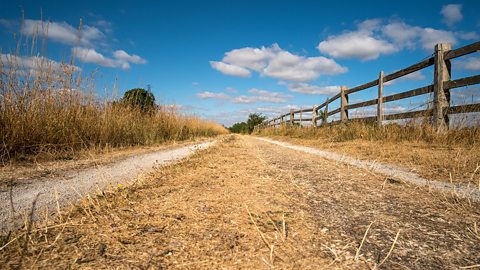
droughtA prolonged period of low rainfall and a high level of evaporation. are very dry periods, caused by a lack of precipitationAny moisture that falls from the clouds, such as snow, rain, hail and sleet. over a long period. They are a risk to water securityHaving a safe, clean, reliable and affordable supply of water. and can damage crops.

Floods
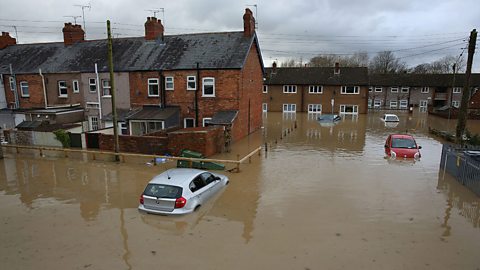
floodAn overflow of water onto surrounding land after heavy rainfall. occur when water covers land that is otherwise dry. They are caused by too much precipitation in a short period of time. Floods damage property, wash away roads and vehicles, and can cause loss of life.

Extreme hot spells

Extreme hot spells can occur during the summer and can lead to drought and thunderstorms. High temperatures can cause dehydrationA condition caused when the body loses more fluid than it takes in. This can become dangerous because the body needs water in order to function., heat exhaustionAn increase in body temperature to 38°C or above (normal body temperature is around 37°C). Heat exhaustion can turn into heatstroke if the body does not cool down. Heatstroke is a medical emergency., and sunburn. Hot spells can also lead to wildfires as vegetation becomes dry and catches fire easily.

Extreme cold spells
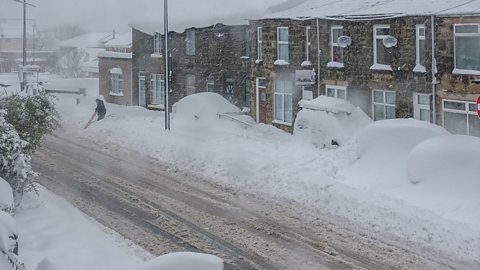
Extreme cold spells can occur during the UK winter. Extremely cold weather can bring heavy snow and ice, creating dangerous walking and driving conditions. It can cause illness in people, such as hypothermiaA drop in body temperature below 35°C (normal body temperature is around 37°C). Hypothermia needs to be treated in hospital. and increased risk of influenzaOften called flu. A viral infection causing fever, aching, coughing and sore throat. Influenza is infectious so it can spread from one person to another..

Question
What health issues can be caused by extremely hot weather in the UK?
Extremely hot weather can lead to dehydration and heat exhaustion. These can be very serious conditions if not treated.
What extreme weather has the UK experienced?
The UK has experienced extreme weather many times. These include strong winds and storms, droughts and floods and extreme hot and cold spells.
Case study: Extreme hot spell - June and July 2018
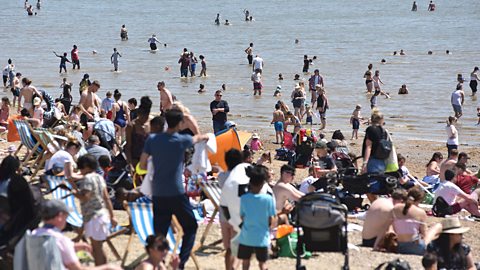
The Met OfficeThe UK's national weather service reported that the summer of 2018 was one of the hottest and driest in the UK since 1910, when records began. Some regions received less than 10 per cent of their usual average rainfall.
Negative impacts:
- Water levels in reservoirA large natural or artificial lake used as a source of water supply. fell. This was a concern because reservoirs are an important source of water for the UK.
- A lack of water for crops led to poorer harvests.
- The heat also caused health issues, such as dehydration and heart failure. The number of people seeking hospital treatment during these months was the highest since records began in 2010.

Case study: Extreme cold spell - February 2021
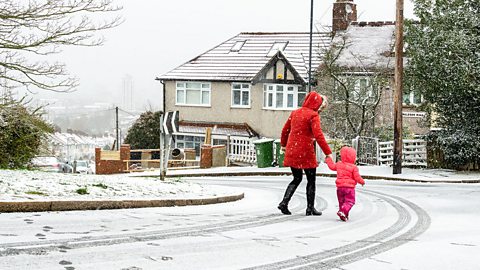
An overnight temperature of -22.9 °C was recorded in Aberdeenshire, Scotland. This was the lowest UK recorded temperature since 1995.
Negative impacts:
- Snow and blizzards caused travel disruption across many parts of the UK.
- Waste collections were suspended so bins were not emptied.
- Wind speeds reached around 40 mph in coastal areas, causing dangerously high waves in places like Cornwall.
- Cold weather alerts were issued by NHS England and Public Health England.

Question
Name one negative impact of extreme weather in the UK.
There are many negative impacts of extreme weather in the UK. They include low water supplies, crop failure, health conditions, disruption to travel, loss of services, such as waste collection and dangerously high waves.
Test your knowledge
Quiz
Play the Planet Planners game! gamePlay the Planet Planners game!
Make decisions for the planet in this KS3 geography game.

More on Weather and Climate Change
Find out more by working through a topic
- count8 of 9

- count9 of 9
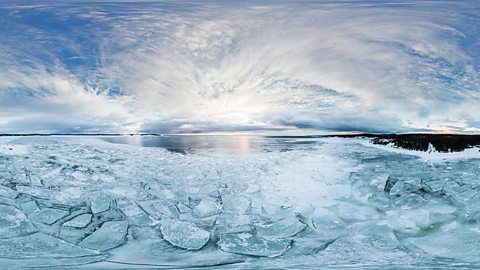
- count1 of 9
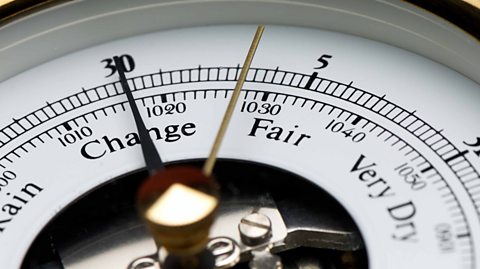
- count2 of 9
